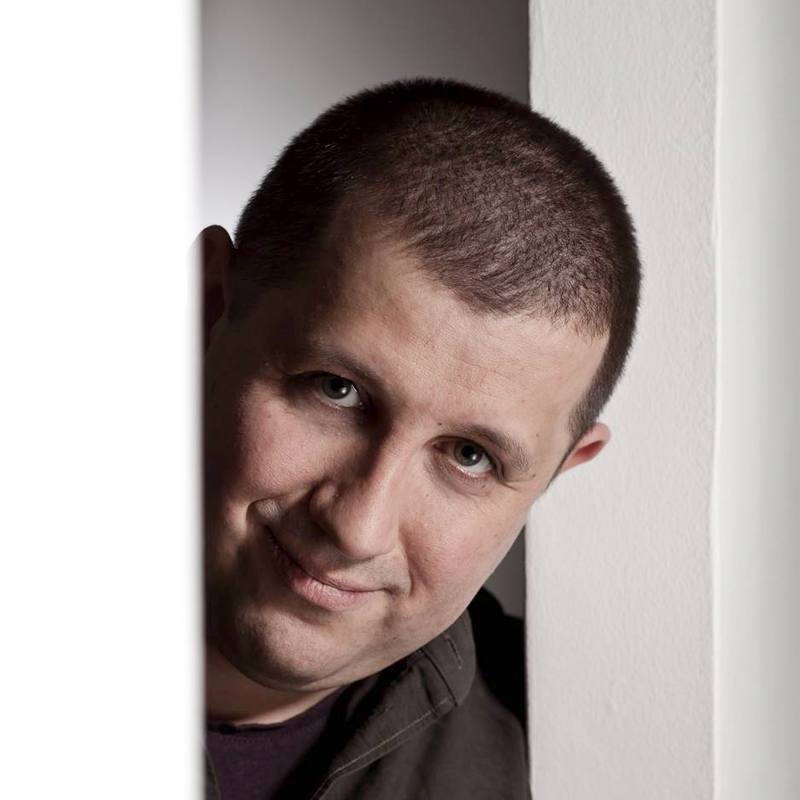“Please choose an extension number or wait to be transferred to the front office,” and the voice of Louis Armstrong on the phone:
And I think to myself,
What a wonderful world!
I wonder who chose this song.The manager of the crematorium? The answering machine retailer (“I have something suitable for your sort of business”)? It’s conceivable that the sweetly hoarse golden oldie is number one on some mourning playlist—incidental music most frequently chosen for the cremation ceremony.
This trope often appears in American comedies. Ashes in a bag, a box, a biscuit tin. The mortal remains in a little vase on the mantelpiece, in a kitchen cupboard, on the windowsill. “What do you keep in this?” “Grandma.” A flurry of hilarious hijinks ensues. Gag upon gag explodes. A cat knocks the urn over. A drunk party-goer mistakes the ashes for cocaine. Finally the climax: the ritual of scattering the ashes, always in windy weather, so that the playful breeze can blow the gray cloud straight into the mourners’ faces. Later—an orgy of sneezing, coughing, and brushing down clothes.
We used to watch many dumb movies together.
***
I came home, where he no longer was. My mother’s friends had gathered, there was general commotion.
“On the Warsaw or national pages?”
“Are you allowed to keep the ID card photo?”
“Would you happen to have a bit of cream? Normal milk is OK if you don’t.”
The management of the cemetery. The crematorium. Life has been divided into a series of tasks to be completed. The feeling of helplessness caught up with me a few days later, as I was leafing through a glossy catalog of urns at the funeral parlor.
All the models looked like a cross between a Grecian vase and a Chinese thermos flask. They sparkled with glitter. They shimmered with chrome. They were gold, white-gold, malachite, and black. They had ornamental handles and grips. Some looked like old-fashioned preserving jars with wire clips. Others resembled Winnie-the-Pooh’s honey pots. Plastics dominated, but the range also offered natural stone (apparently nature has off days too).
And—obviously—crosses. Carved. Painted. Stuck to the side. Protruding on top (like a miniature of the Giewont mountain). Of course, there was also the inevitable crown of thorns, Mother of God in half-profile, and the Pensive Christ. Poor Dad. A nonreligious Jew, completely uninterested in issues of faith, ended up outside the target group.
The alternative was a flower—a white lily or a fading rose. According to the funeral industry, Poland was inhabited by two kinds of people: Christians and members of a florists’ cult.
I flipped through the catalog, the funeral parlor boss was getting impatient. Under her gaze, I finally chose a model. It was slightly less decorated, its shape was a bit simpler, and even the white rose looked rather discreet.
Later, for a few hours I deluded myself that it was OK. But it wasn’t. Dad would never have agreed to a receptacle like this. It’s vile to disregard somebody’s sense of aesthetics just because they’re dead.
***
My father’s taste defined our lives for many years. His verdicts were impetuous and definitive. We lived in an aesthetic minefield. In time I learned to avoid the traps, and as I carved a safe path, I felt our sense of complicity grow. We became brothers-in-arms in this war against the whole world.
The thing was: Dad wouldn’t let ugliness cross our doorstep.
We lived in a state of siege, the Amish of the visual. The political system was against us. As was the economy. And the climate. A half-inch outside our apartment door, an oil-paint dado and terrazzo flooring began. The elevator with the melted buttons was waiting, along with the block of flats. The landscape of late socialism.
When talking about the people we loved, laconic diagnoses are out of place. What concerns our loved ones should be complicated and unique. In fact, it was simple and unremarkable. Simply put, there are people whose day can be ruined by the wrong-colored plug. Who prefer to stay at home than go on holiday to a seaside guesthouse where the carpets are repulsive. Poor wretches tortured by expanses of plaster finish.
Yes, yes, I know. Taste is a category of class. It sets out hierarchies and divisions. It reflects our aspirations and fears. It allows us to put on airs, to lie to ourselves, to cheat. And so on.
***
At least in terms of the urn, I had my way. In the orphaned address book, I found the number of a sculptor Dad had worked with once. I called. I explained the issue. The funeral was in two days. The artist listened to me unsurprised. He thought a while.
“I made flower boxes for a church in Ursynów. If I take off the legs, it’ll be perfect . . . ”
And so I buried my father’s ashes in a black granite cube. The name and surname were carved into one side. Font: Futura. Majuscule. Two times five letters, elegantly justified, just as he liked. I was bursting with pride. The urn was beautiful. The problem was that the only person who could appreciate that, the only person whose opinion mattered to me, was already dead.
From Jak przestałem kochać design. © Marcin Wicha. Published 2015 by Wydawnictwo Karakter. By arrangement with the publisher. Translation © 2018 by Marta Dziurosz. All rights reserved.











